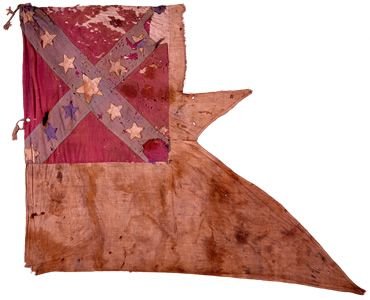Account Of The Encounter On August 7, 1864, At Moorefield, West Virginia
In 1902, the Lincoln Cavalry Association published a regimental history of the 1st Regiment Cavalry, New York Volunteers, or “Lincoln Cavalry.” Written by veteran William H. Beach, first lieutenant and adjutant in the “Lincoln Cavalry,” the volume includes an account of the encounter on August 7, 1864, at Moorefield, West Virginia, in Bradley Johnson’s own words. Johnson’s letter to Beach, as printed in the regimental history, is transcribed below:
BALTIMORE, MD., May 7, 1895.
MY DEAR LIEUTENANT BEACH:
Your letter brings back to me scenes and feelings of a third of a century ago, and I long for “one hour of Bonnie Dundee.” Said King Hal, on the eve of Agincourt:
“ Old men forget, yet all shall be forgot;
But he’ll remember with advantages
What feats he did that day.”
It seems to me an honest human feeling that old soldiers should recount their adventures, their achievements, their victories and their defeats. I do not envy the people who grudge them their indulgence in this natural pleasure.
In August 1864, I was in command of a brigade of cavalry in the Army of Northern Virginia, and with Gen. McCausland and his brigade, was sent to exact tribute from Chambersburg, Pa., or, in default of payment, to burn that town in retaliation for the burning by Gen. Hunter, of the homes of R. W. Lee, A. R. Boteler and Gov. Letcher, and of the Virginia Military Institute at Lexington. Early’s intention was to make Chambersburg pay Lee, Boteler and Letcher. We, McCausland being senior, crossed the Potomac, went to Chambersburg and demanded $100,000 in gold, or $500,000 in greenbacks, and in failure of payment promptly burned the town. On our return Averell, with a brigade of Union cavalry, in which was the First New York, overtook us at Hancock, two marches from Chambersburg, and attacked our rear guard, which was from my brigade. He made no impression, and when we got ready we moved leisurely up the National pike to Cumberland, where Kelley had a lot of infantry and blocked our way. Turning back, we crossed the Potomac at Oldtown, where we captured a block house held by Col. Stough of the 154th Ohio – one hundred days men – I think, 150 of them. We pushed on to Romney, and next to New Creek, which place we attacked, but failed to carry. Thence we went to Moorefield, where we camped the evening of the 6th of August. We had been marching day and night since August 1st. We had not camped or taken off our clothes, so we were reasonably tired. I was sound asleep at daylight, August 7th, when my adjutant jumped into my room. I was on the second floor of the McNeil House with my jacket and boots off, lying on the floor with my head on my saddle. “General, the Yankees are in the camp!!” In one twist I was in my boots, jacket and hat. I am thus particular, for I heard a fellow once tell a very interesting yarn, how “General Bradley Johnson was playing poker one night, when Averell ran him out, and he swam the South Branch of the Potomac in his night shirt.” The story elicited great applause, for the auditors knew me and the narrator didn’t. But the climax came when Wade Hampton said, “Let me introduce you to General Bradley Johnson!” Said the man, “Great God! I thought I knew him.” “I was sure you didn’t,” said Hampton, “for to my certain knowledge he never had a night shirt the whole war, and never played a game of cards.” Anyhow, I reached the ground floor in two jumps, and was out of the front door. But along the road, ten steps off, was a column of horsemen in blue, at carry saber, moving at a trot. I turned for the back entrance. Five or six gentlemen in blue came bouncing up the steps and into the hall, pumping their Spencer carbines at every jump.
Well, there are many gymnastic exercises and many plans of getting men into condition for speed, but my observation then was that five Spencer carbines ten yards behind a man, pouring five continual streams of bullets around and over him, are the most exhilarating tonic that was ever invented. I went down the steps in one jump, over a four and a half foot fence in another. As I got into the open, a man fell from his horse. I was on the horse in a breath, galloping to get ahead of the Yankee column to my command, yet untouched. I reached the 8th and the 21st Virginia, crossing the South Branch of the Potomac. I formed the 8th and held it for, say fifteen minutes, while the 21st was forming in the rear. The momentum of the blue horsemen was irresistible, though. They rode over everything; they rode over me with the 8th; they rode over Peters with the 21st, wounded and captured him (he is now Professor of Latin in the University of Virginia), and nearly routed McCausland and me off the face of the earth.
I consider it a very amiable thing in me to write this for your amusement, but I have never blamed myself for the disaster. Averell surprised my pickets by a ruse de guerre, and he is entitled to the credit of a very brilliant exploit, for which I do not think he ever received proper credit. He was a chivalric and gallant soldier, and you “like a man after you’ve fought him.” That’s old Colonel Beauseant in the Lady of Lyons.
I am yours very truly,
BRADLEY T. JOHNSON.
Source: William H. Beach, The First New York (Lincoln) Cavalry (New York: The Lincoln Cavalry Association, 1902), pp. 409-410.

Brigadier General Bradley T. Johnson's Headquarters Guidon
See also Brigadier General Bradley T. Johnson's Headquarters Guidon
